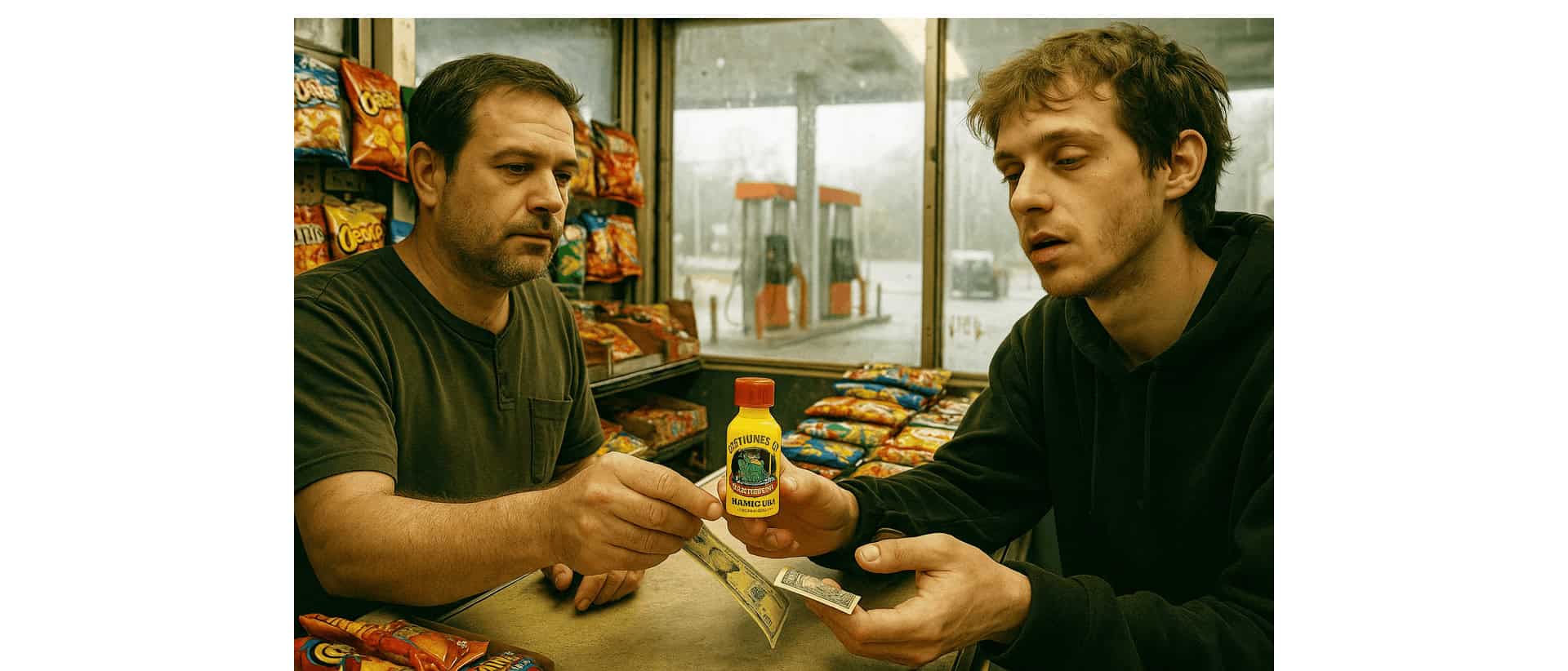The Federal Food and Drug Administration recently posted a warning about the dangers of the drug Tianeptine, which is being sold over the counter at gas stations, convenience stores, and online¹.
Marketed under names like Zaza or Tianna Red, Tianeptine is unapproved in the U.S. but easily accessible. It is often labeled as a dietary supplement or nootropic, but experts warn it behaves more like a powerful opioid than a harmless wellness product². While some countries prescribe it as an antidepressant, U.S. health officials are increasingly alarmed by its potential for misuse, addiction, overdose, and death³.
Tianeptine works by stimulating the brain’s mu-opioid receptors—the same receptors targeted by drugs like heroin and oxycodone⁴. This makes it not only habit-forming but also highly dangerous, especially when users take much more than the low doses prescribed overseas⁵.
According to the CDC and FDA, poison control calls related to Tianeptine have surged, and emergency room visits for Tianeptine-related complications have become more common⁶. Reports document overdose symptoms including respiratory depression, unconsciousness, and seizures, sometimes requiring naloxone (Narcan) to reverse the effects⁷. At least nine U.S. deaths have been linked to Tianeptine so far⁸.
Tianeptine is typically sold in pill or powder form, with some users consuming 50 mg to several grams per day—far beyond the medically prescribed dose⁹. A bottle usually costs between $15 and $30, making it cheap and appealing, especially to individuals struggling with mental health or opioid dependency¹⁰.
Though banned in a handful of states like Michigan and Alabama, Tianeptine remains legal in much of the country because it has not been scheduled as a controlled substance at the federal level¹¹. This legal gray area allows it to be sold over the counter, often with no age restrictions¹².
Demographic data suggests most users are young to middle-aged adults, often with a history of substance use or self-medication¹³. Many learn about it through online forums or word of mouth, believing it to be a legal high or an alternative treatment for anxiety or depression¹⁴.
Tianeptine is typically imported in bulk from China or Eastern Europe, then repackaged by U.S. distributors and sold through gas stations, smoke shops, and online retailers¹⁵. Because it’s not federally regulated, oversight is minimal, and buyers often have no idea how much active drug is in each dose¹⁶.
The FDA’s warning is clear: Tianeptine is dangerous and potentially deadly. Despite the innocuous packaging and ease of access, the risks rival those of much more tightly controlled drugs¹.
¹ FDA: Tianeptine Products Linked to Serious Harm, Overdoses, and Death
² CNN: Gas station heroin sends people to poison control
³ NIH: Tianeptine misuse and associated health risks
⁴ NIH Research News: Tianeptine acts like an opioid
⁵ PMC10444703: Misuse includes very high doses
⁶ CDC: National Poison Data System statistics (via CNN)
⁷ Case reports via NIH and FDA adverse event reporting
⁸ FDA & NIH fatality reports, including 9 confirmed overdose deaths
⁹ Reports of usage up to several grams daily in misuse cases
¹⁰ Retail pricing from user forums and online listings
¹¹ State legislative actions banning Tianeptine (e.g., Michigan, Alabama)
¹² Most retail points do not check ID or restrict age
¹³ Demographic data from NIH/CDC study on poison control cases
¹⁴ Anecdotal evidence from Reddit, TikTok, and drug forums
¹⁵ NCBI analysis of global sourcing and retail chains
¹⁶ Labeling often omits exact dosage; users are often unaware
Addiction Gap is a certified 501(c)(3) nonprofit
